
Seoul Shakers
Seoul Shakers has transformed what used to be Holy Oak into a moody restaurant and bar.
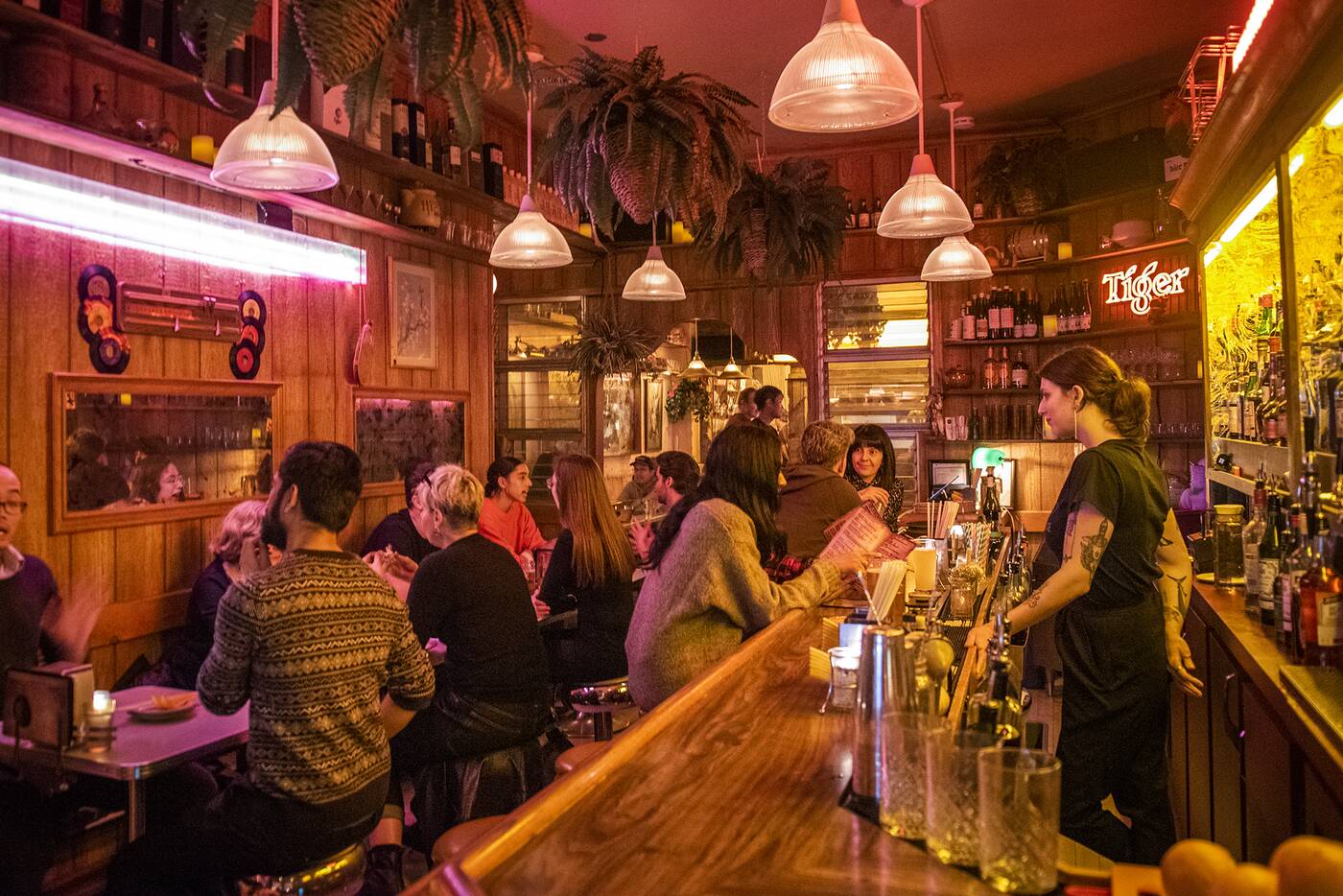
True to its name, the menu of sharing plates shakes up iconic Korean dishes and flavour profiles.
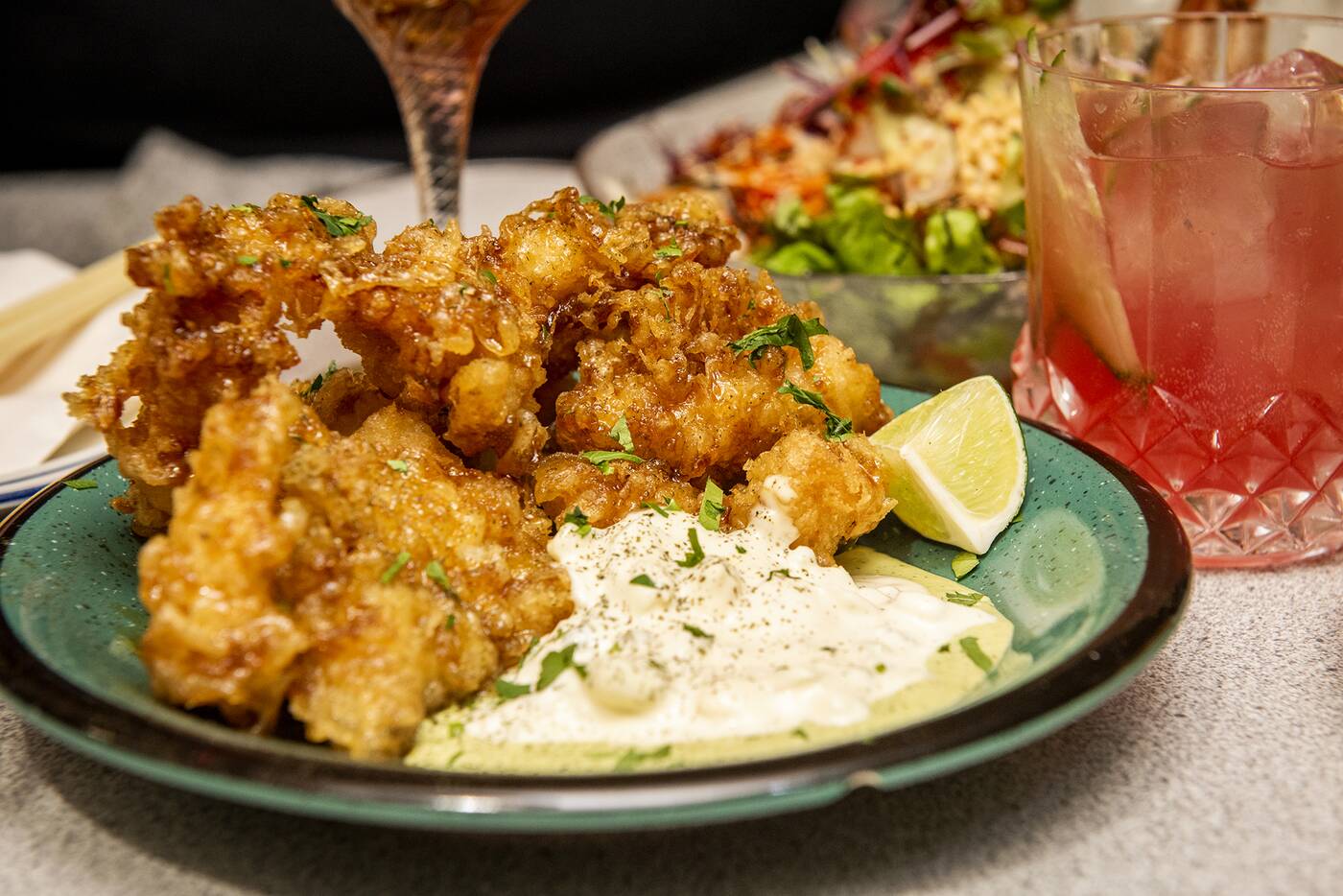
Tempura salt cod ($10) sees rich fish enrobed in a light and crunchy batter atop a triad of sauces: a more traditional but chunky tartar sauce, a green sauce of mint, lime and cilantro, and a sticky sweet nanban sauce.
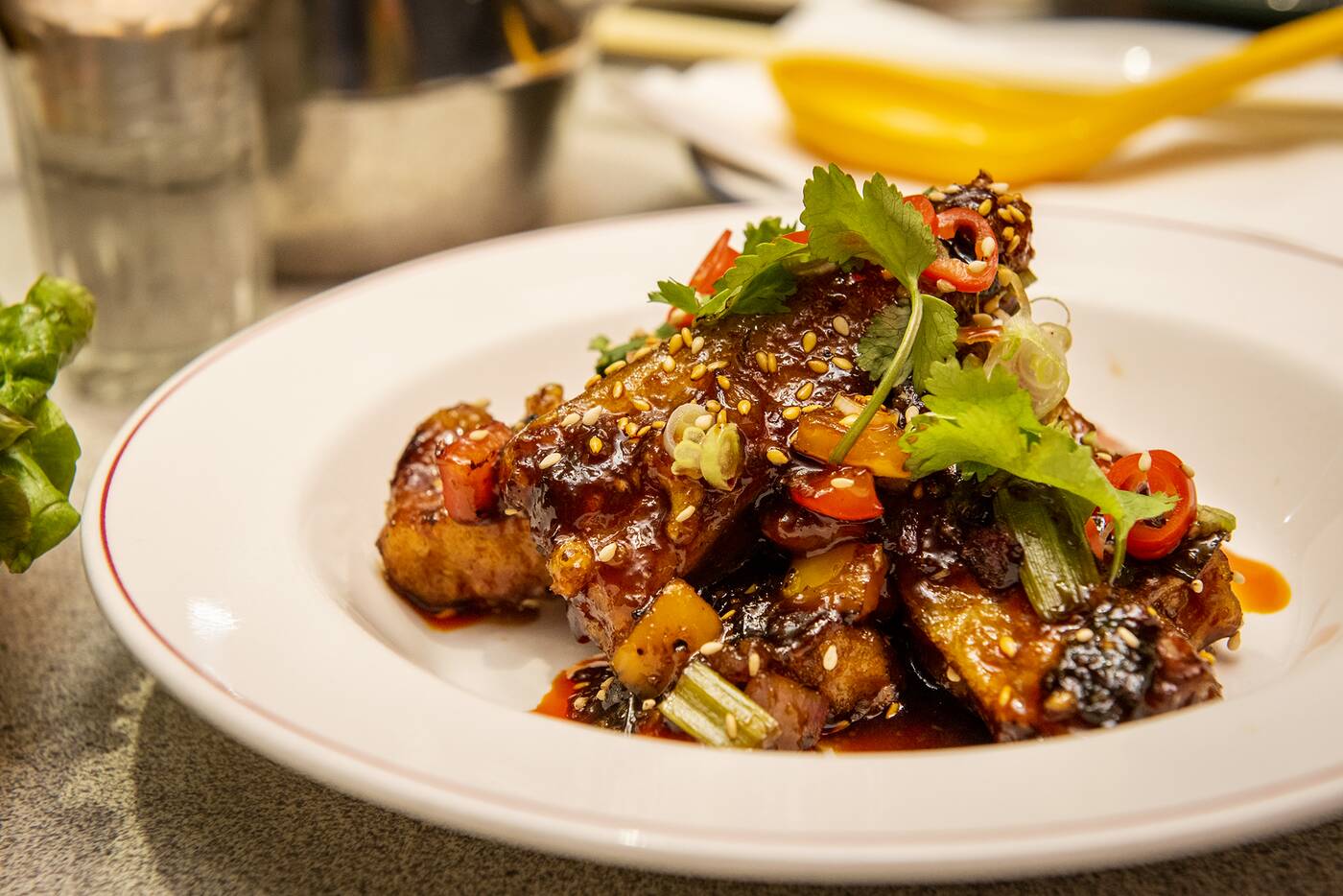
Eggplant kangpungi ($12) is presented to me as essentially an eggplant kung pao, kangpungi a Korean Chinese method preparation. Slightly crispy fried eggplant is slathered in a thick spicy sweet soy glaze with bell pepper, scallions and chili oil.
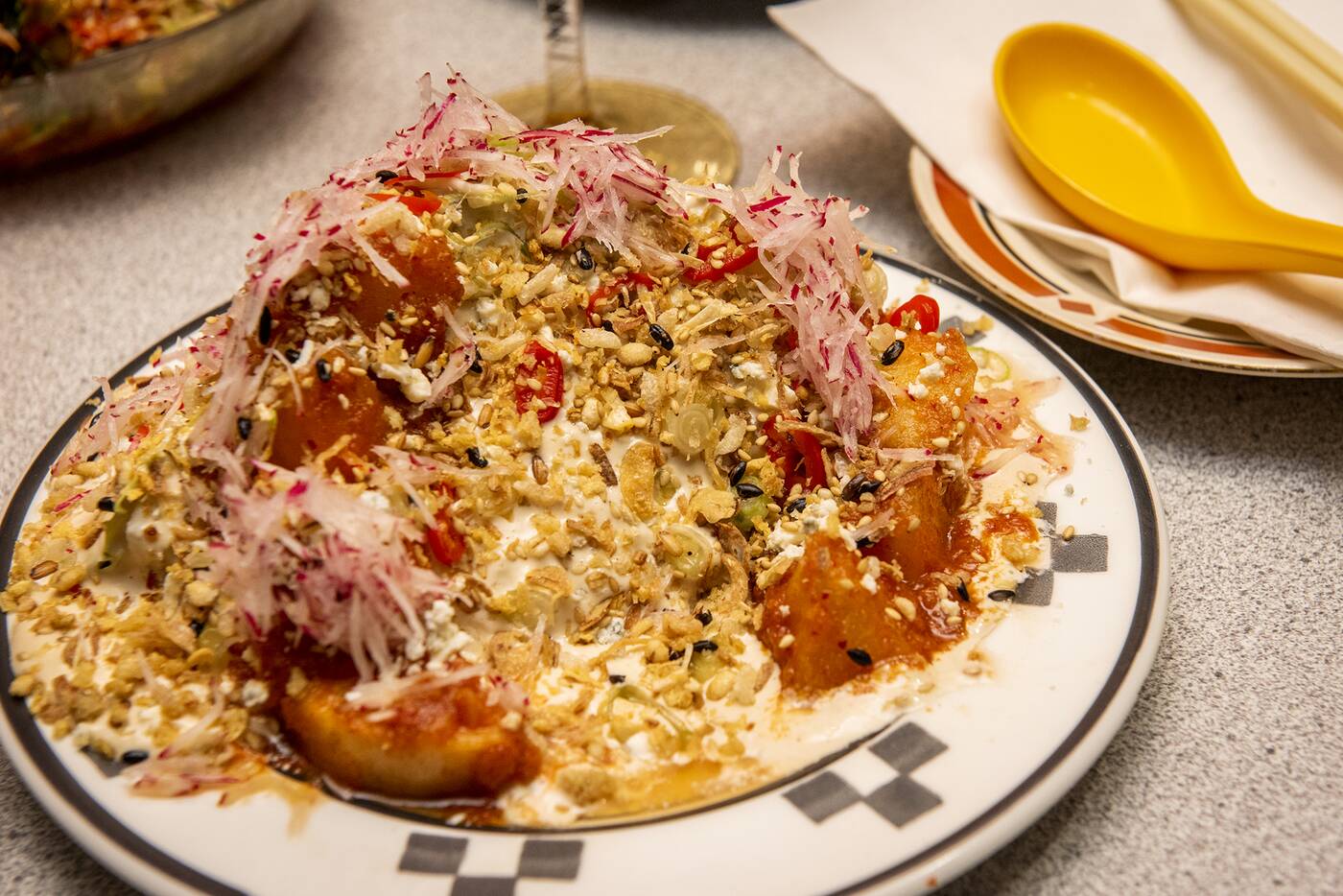
A kimchi pear wedge salad ($10) feels like a successful round of Cutthroat Kitchen: it totally reminds me of a classic wedge salad, but Korean influence is written all over it. It features fermented but still crisp Korean pear, stilton, a ginger onion dressing, roasted brown rice and pickled chilis smother iceberg, sectioned for eating with chopsticks.
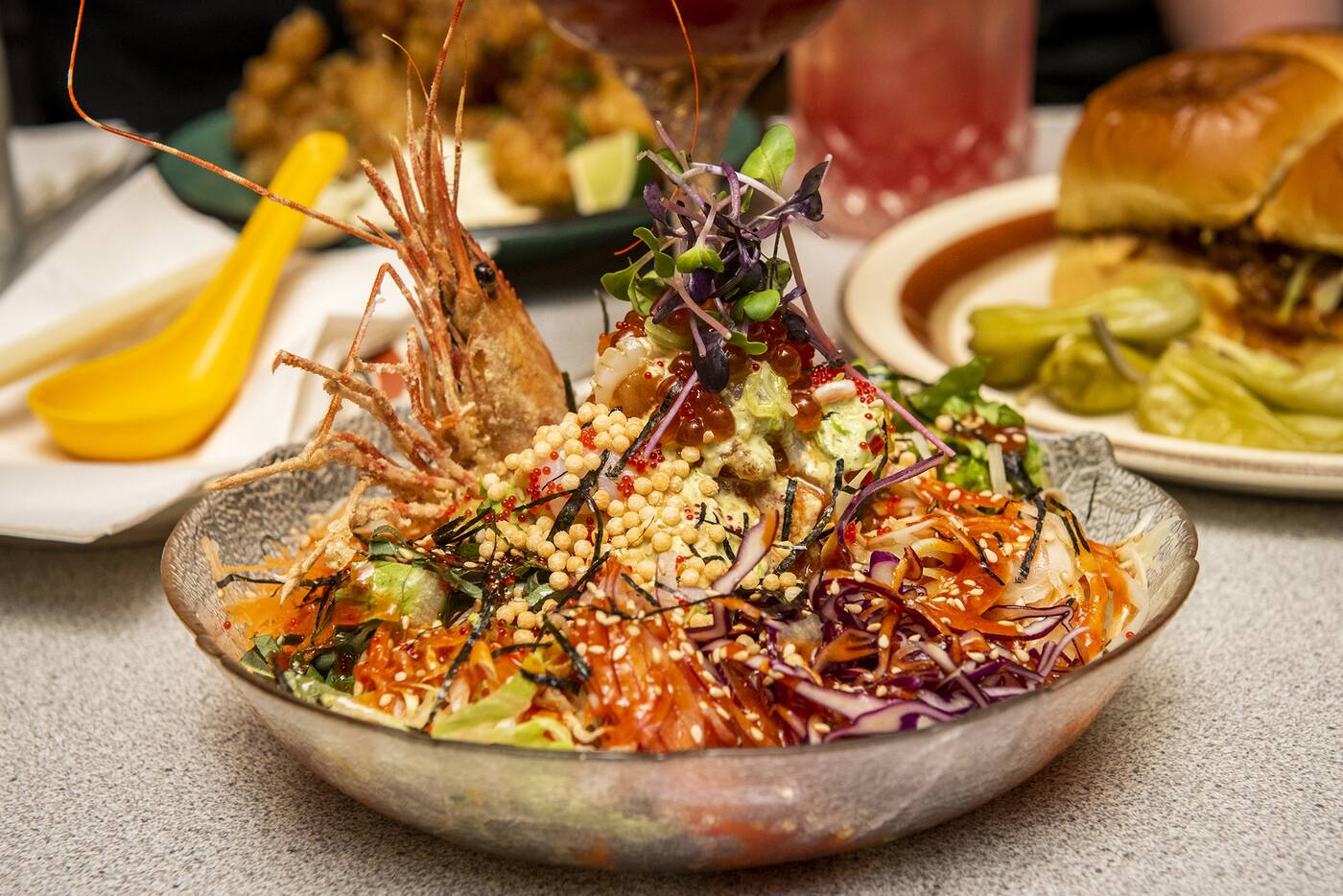
Hwe dup bap ($17) amps up a traditional Korean sashimi salad. Chunks of albacore, yellowfin, shrimp, mongo squid, salmon, tobiko and ikura are heaped on a bed of shredded red cabbage, green cabbage, iceberg, daikon and carrot with a very spicy red chili pepper house sauce.
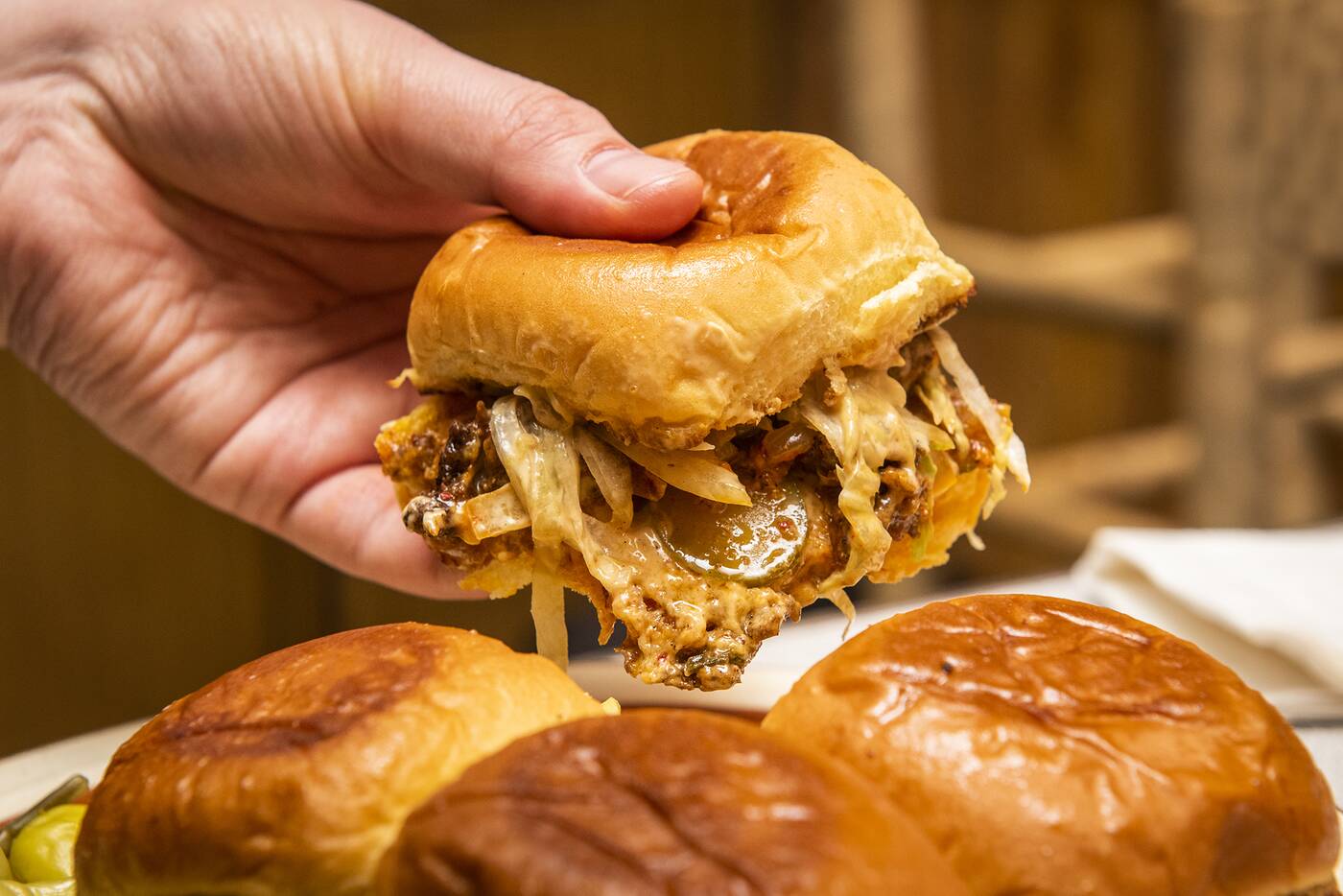
The roast kimchi chopped cheese stars, $15 for a “biggie” size that’s essentially equivalent to four sliders, $8 for a “smalls” of two. My favourite part is how the squishy yellow buns are connected so you have to pull apart the sandwiches loaded with chopped ground beef, roasted kimchi, pickles, lettuce, cheese and a tangy special sauce.
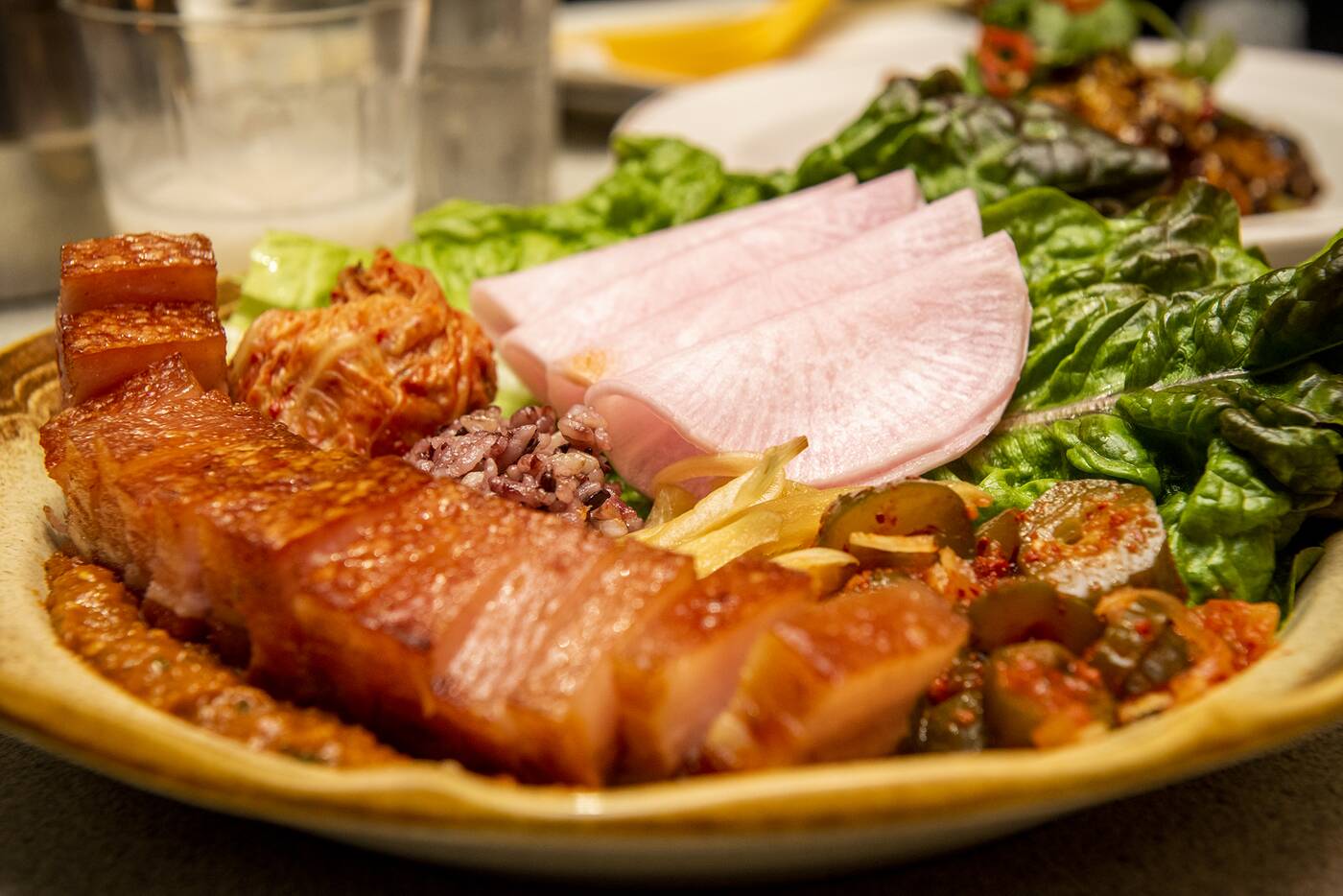
Pork belly steak ssam ($25) takes a traditional lettuce wrap meal to the next level, pork belly brined with ginger, garlic and brown sugar, then cooked sous vide and finished on the flat top for melty, pearly meat and a crispy skin.
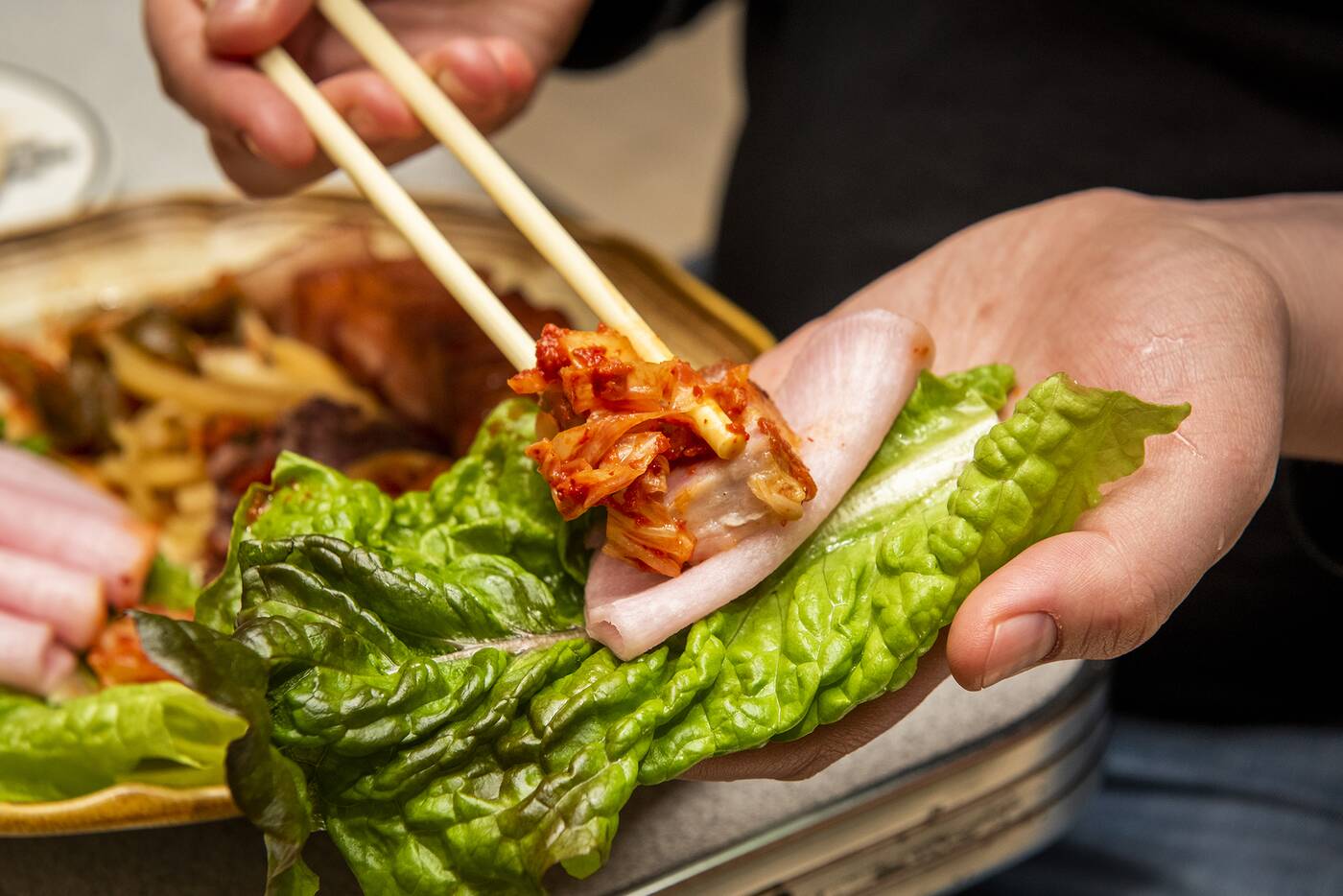
It’s accompanied by red leaf lettuce, house cabbage and cucumber kimchi, pickled onion, rice, delicately sweet and crunchy beet pickled daikon, and a thick sauce of gochujang and Korean miso.
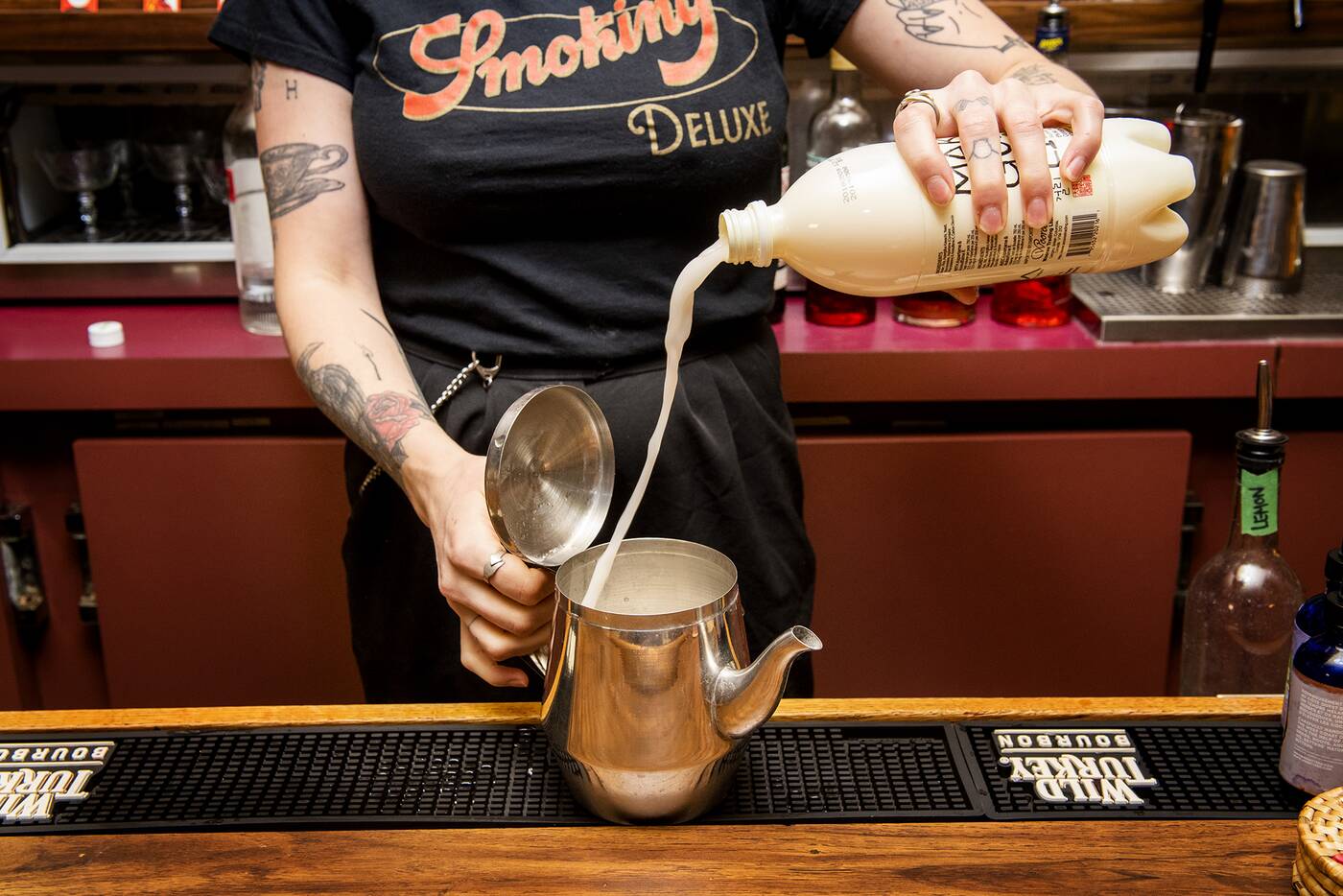
House makgeolli comes in a metal teapot whether ordered for two ($24) or four ($38), a potent combination of Korean rice wine, Dillon’s peach schnapps, tequila and lime that goes down almost too easy.
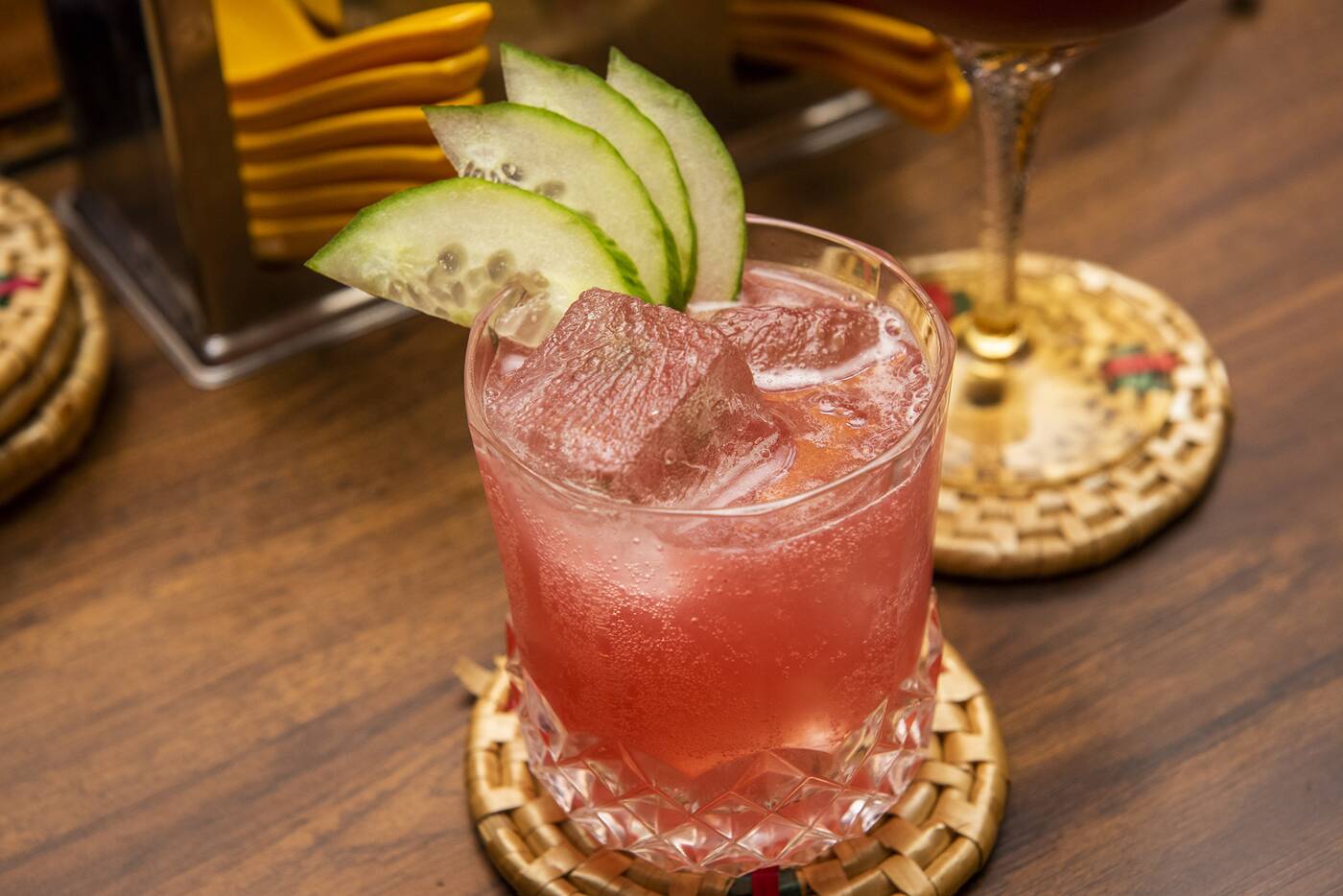
The Fino Berry ($13) has a similar effect, cucumber bitters and pomegranate combining with Tio Pepe, Dillon’s 22 gin and lemon for a one-two punch of flavour.
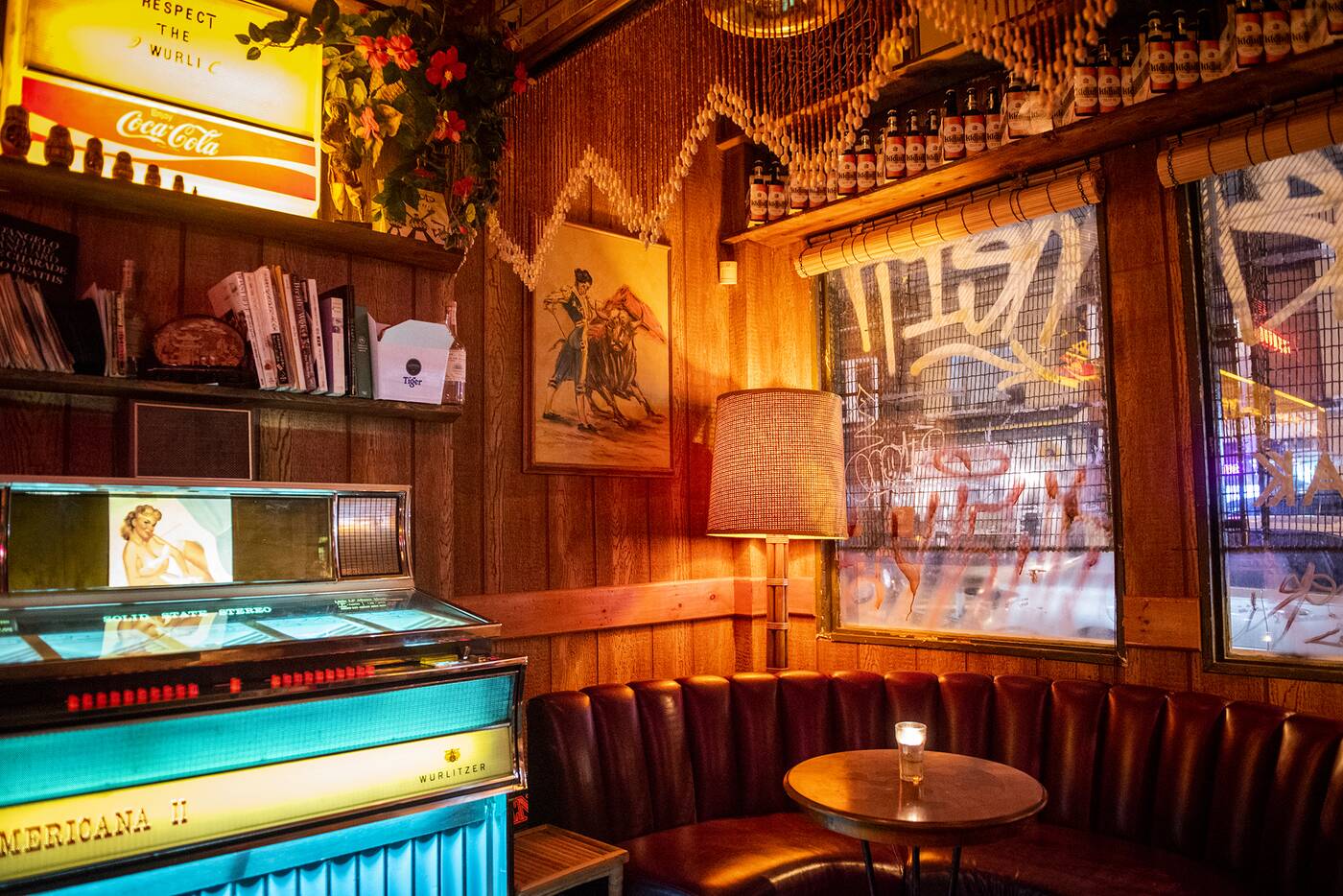
The vibe is similar to that of owner Leemo Han’s other projects like Hanmoto, Pinky’s Ca Phe and Cold Tea, not only in terms of the food but also the dim lighting, jungle-like collection of hanging houseplants, neon, kitsch and informal stools.
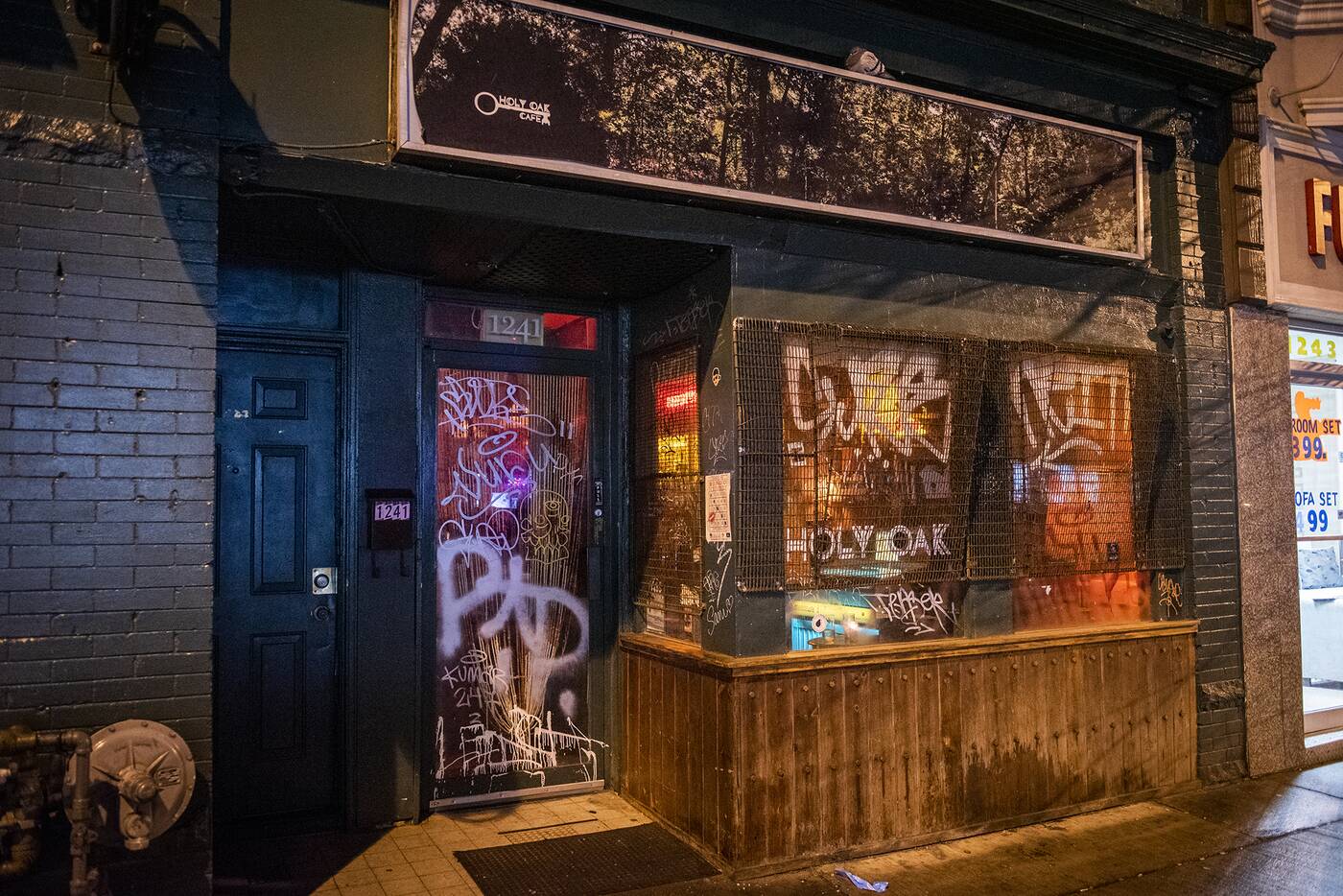
Hector Vasquez









